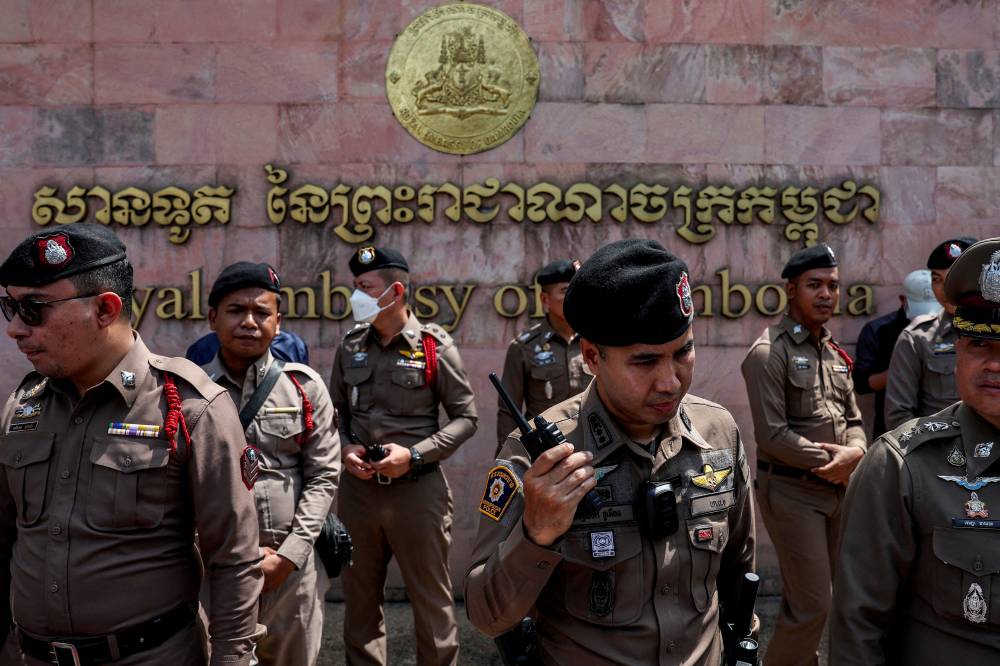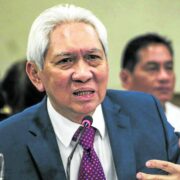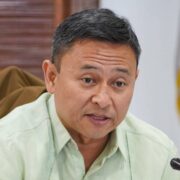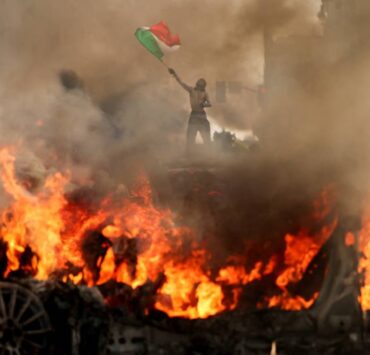Thailand, Cambodia OK return to 2024 border posts

BANGKOK/PHNOM PENH—Cambodia’s Defense Ministry confirmed on Sunday that Thailand and Cambodia had agreed to return their troops to previous border positions after a clash in which a Cambodian soldier was killed prompted both to reinforce their military presence.
The Cambodian statement, which said both sides wished to ease tensions following the incident in an undemarcated area on May 28, came after Thai Defense Minister Phumtham Wechayachai said both countries were in talks to defuse the situation and would revert to positions agreed in 2024.
For days, the two governments have exchanged statements, saying they were committed to finding a peaceful resolution. Neither gave details about where or to what extent their military forces had been reinforced at the weekend.
Thailand operates 17 official border crossings with Cambodia, spanning seven provinces along their shared 817-kilometers frontier, Thai government data shows. Both countries have for more than a century contested sovereignty at undemarcated points along their shared border, which was mapped by France in 1907 when Cambodia was its colony.
Thailand’s Phumtham said both sides hoped the border issue could be fully resolved through bilateral talks, including a meeting of the Joint Boundary Committee on June 14.
Cambodia’s Foreign Ministry reiterated a request to bring the border disputes to the International Court of Justice in a letter to Thai officials on June 6.
“Given the complexity, historical nature and sensitivity of these disputes, it is increasingly evident that bilateral dialogue alone may no longer suffice to bring about a comprehensive and lasting solution,” Foreign Minister Prak Sokhonn said in the note shared with reporters on Sunday.
“A decision rendered by the ICJ, grounded in international law, would offer a fair, impartial, and durable resolution,” he said.
ICJ not recognized
The Thai government has said it does not recognize the court’s jurisdiction and proposed that all boundary-related issues be resolved through bilateral negotiations.
Tensions between the countries escalated in 2008 over an 11th-century Hindu temple, leading to skirmishes over several years and at least a dozen deaths, including during a weeklong exchange of artillery in 2011.
In the latest flare up, Thailand cut operating hours at 10 border crossings with Cambodia, citing security concerns.
Checkpoints, including the busiest in Thailand’s eastern province of Sa Kaeo, halved operating hours on Sunday to 8 a.m. to 4 p.m. local time, from 6 a.m. to 10 p.m., previously, Thai Foreign Ministry spokesperson Nikorndej Balankura told reporters.
The governments of Thailand and Cambodia previously enjoyed warmer ties, owing to a friendship between former leaders, Thaksin Shinawatra from Thailand and Cambodia’s Hun Sen.
Thaksin’s daughter, Paetongtarn Shinawatra, and Hun Sen’s son, Hun Manet, are now the incumbent prime ministers of their countries and the conflict has raised questions over their relationship.
Reuters, the news and media division of Thomson Reuters, is the world’s largest multimedia news provider, reaching billions of people worldwide every day. Reuters provides business, financial, national and international news to professionals via desktop terminals, the world's media organizations, industry events and directly to consumers.

















